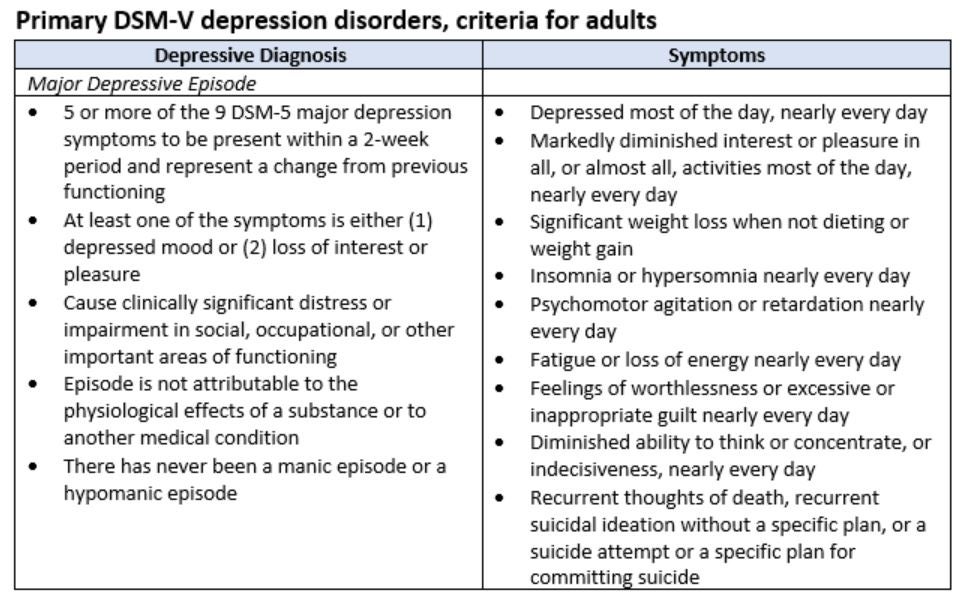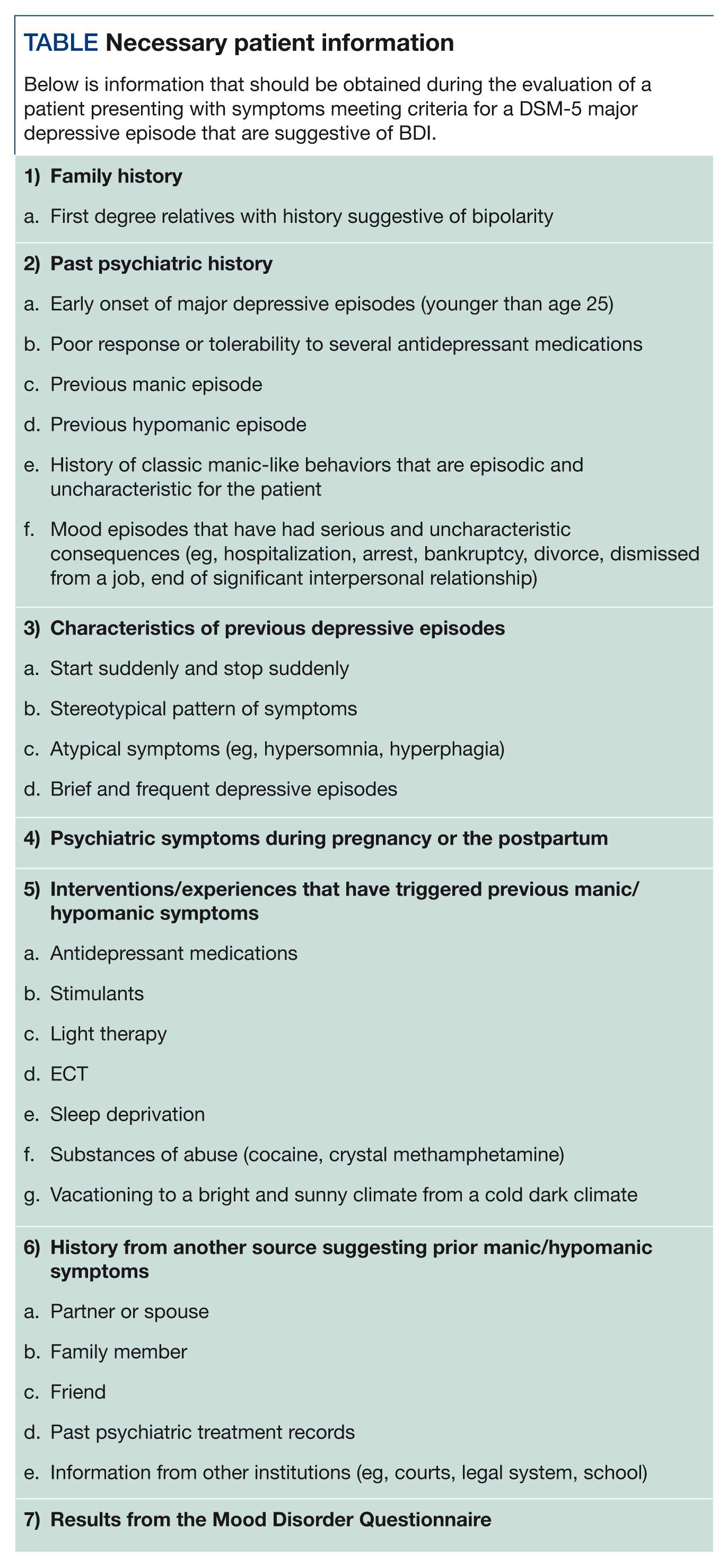Question 10 A period of at least one week in which both a manic episode and a major depressive episode occur almost daily is consistent with which diagnosis. Depression usually develops during middle age b.

Hcc Coding Major Depressive Disorder Specificity Makes A Difference Chess Health Solutions
F Five or more of the following symptoms have been present during the same 2-week period and represent a change from previous functioning.

. True depression is usually not related to stress in ones work or relationships. It is equally common in men and women. If a recurrence is not experienced within 1 year after an initial depressive episode recurrence is highly unlikely.
Major Depressive Disorder Major Depressive Episode. If the cause cannot be removed the patient must learn to adapt. Hypomania is a diagnostic criterion for bipolar II disorder but not cyclothymic disorder.
A major depressive episode is a period of two weeks or longer in which a person experiences certain symptoms of major depression. Most episodes last longer than a yearc. It occurs five times as often in elderly people as in middle-aged adults.
A Major Depressive Episode is most often the result of stress in a persons life and usually has a definite cause. Most individuals diagnosed with major depression will exhibit a recurrence. Asked Dec 7 2018 in Psychology by madvillainy.
SOLVEDWhich of the following is true with regard to a major depressive episode. Clients are usually asymptomatic between depressive episodes. The prevalence of major depressive episode was highest among those who report having multiple two or more races 159.
Depression usually happens without major cognitive or behavioral changes. Which of the following is true of major depressive episode. Which of the following is true of depression.
A If a recurrence is not experienced within 1 year after an initial depressive episode recurrence is highly unlikely. A major depressive episode is necessary for a diagnosis of bipolar I disorder. A major depressive episode usually gets worse and worse unless its treated.
Bipolar II Disorder. It is the most prevalent mood episode. Depression usually happens without major cognitive or behavioral changes.
Which of the following is true of the difference between persistent depressive disorder and major depressive disorder. True depression is usually not related to stress in ones work or relationships e. Which of the following statements about the length of untreated major depressive first episodes is truea.
A major depressive episode usually gets worse and worse unless its treated d. C quad It may involve a decrease in sleep. Feelings of sadness and hopelessness fatigue weight gain or weight loss changes in sleeping habits loss of interest in activities or thoughts of suicide.
B quad It must involve thoughts of suicide or a suicide attempt. Most episodes go away within a monthd. Which of the following is true of major depressive episode.
It is the most prevalent mood episode. Preventing reoccurrences of major depressive disorder is unimportant because subsequent episodes of depression seem to. Depression usually develops during middle age.
It does not begin until adolescence. It does not begin until adolescence. Question 11 Which of the following is NOT true about.
True depression is usually not related to stress in ones work or relationships. Those with depression with psychotic features are less likely to experience a recurrence. Losing a job or getting divorced are both common causes of a Major Depressive Episode.
A Major depressive disorder is less severe and less chronic than persistent depressive B Major depressive disorder is more severe and more chronic than persistent depressive Oc Major depressive disorder is more severe and less chronic than. A major depressive episode usually gets worse and worse unless its treated. It occurs five times as often in elderly people as in middle-aged adults.
183 Which of the following statements is true of mood disorders. Which of the following is true of depression. Bipolar I Disorder cyclothymic type.
Most episodes go away within a yearb. Depression usually happens without major cognitive or behavioral changes c. CCyclot hym ic Disorder DMajor Depressive Episode Question 60 The most powerful predictors of the onset of a depressive episode is which of the following.
About 90 percent of those hospitalized for major depressive disorder are fully recovered after one year. Bipolar I Disorder mixed episode. The prevalence of adults with a major depressive episode was highest among individuals aged 18-25 170.
A It may last less than two weeks. Depression usually develops during middle age. Most episodes last longer than five years.
If the cause of the stress can be removed the Major Depressive Episode ends. The prevalence of major depressive episode was higher among adult females 105 compared to males 62. At least one of the symptoms is either 1 depressed mood or 2 loss of interest or pleasure.
It is equally common in men and women. D quad It must involve feelings of sadness. Which of the following is true of depression.
Psychology questions and answers. C Most individuals diagnosed with major depression will exhibit a recurrence. B Those with depression with psychotic features are less likely to experience a recurrence.
AResent stressful events- Stressful life incidents along with current minor difficulties have been determined as predictors of an episode of depression.

Pin By Behavioral Architect On Self Help Coping Toolbox Psych Behavioral Health Counseling Psychology Abnormal Psychology Lcsw Exam

Major Depressive Episode Is It Bipolar I Or Unipolar Depression

Pin By Layla Javaheri On Info In 2022 Disorders Grief Emotions
0 Comments